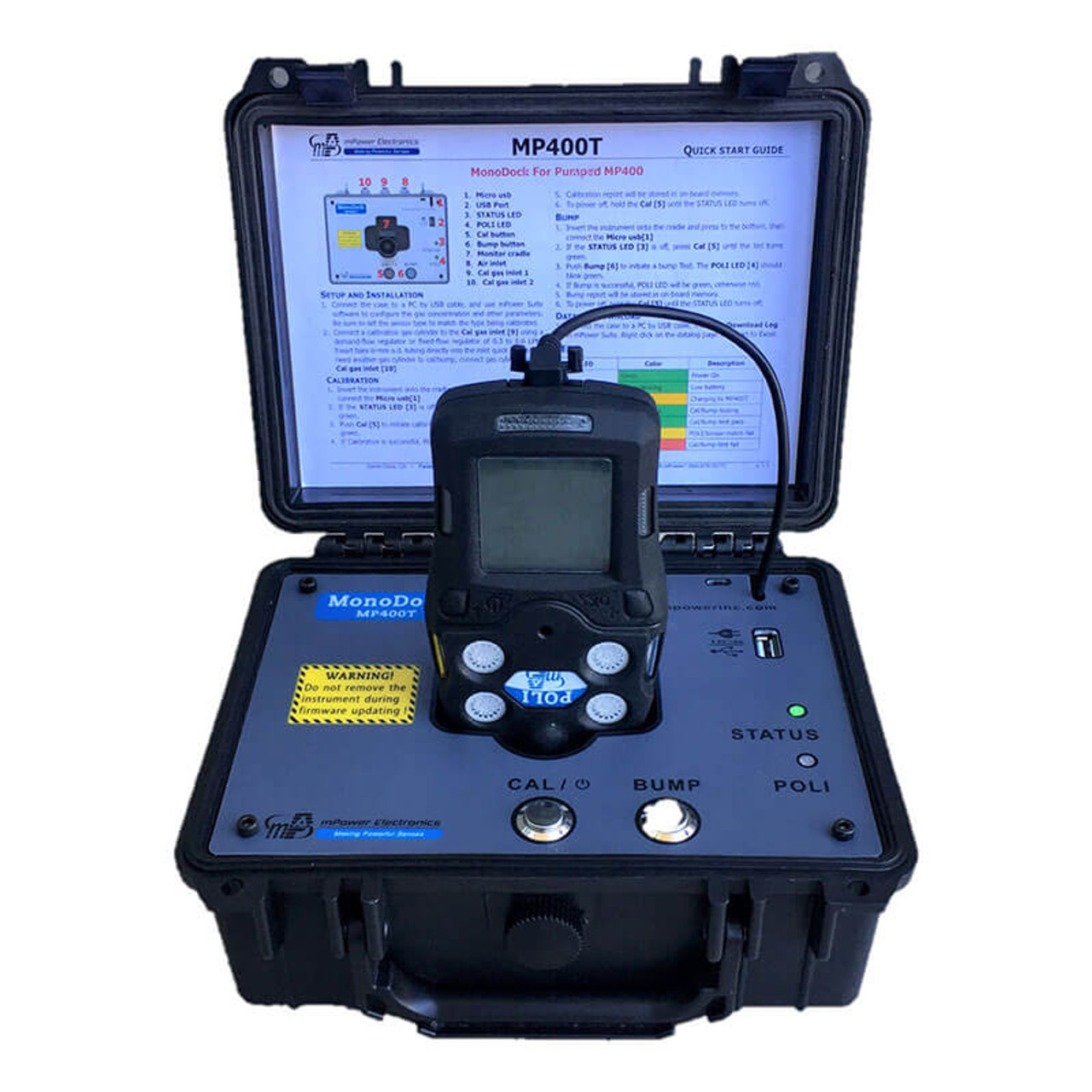Introduction
When it comes to ensuring the safety of workers in potentially hazardous environments, portable gas detection equipment is an invaluable tool. Whether you're in the construction industry, working in confined spaces, or dealing with hazardous chemicals, these devices are the first line of defense against unseen dangers. However, their effectiveness hinges on two critical procedures: bump testing and calibration. In this blog post, we'll delve into the significance of these processes, along with the relevant OSHA and NFPA regulations that mandate their use.
The Importance of Bump Testing
Bump testing is a crucial step in the maintenance and use of portable gas detection equipment. It involves exposing the sensor to a known concentration of gas to ensure it responds accurately. Here's why bump testing is so vital:
1. Verification of Sensor Functionality
Bump testing confirms that the gas detector is functioning correctly. It checks if sensors respond to gas as expected, ensuring that the device can detect hazardous substances when needed. Without this verification, users may have a false sense of security.
2. Safety Assurance
Workers rely on gas detectors to provide early warnings of dangerous gas levels. Bump testing helps ensure that these devices will perform reliably, reducing the risk of accidents and injuries caused by undetected gas leaks or exposure.
3. Compliance with Regulations
OSHA (Occupational Safety and Health Administration) has clear guidelines regarding the use of gas detection equipment. Regular bump testing is often a mandatory part of ensuring compliance with these regulations. Failure to comply can result in fines and penalties.
The Significance of Calibration
Calibration is a more comprehensive process that fine-tunes the gas detector to ensure accuracy across its measurement range. Here's why calibration is essential:
1. Accurate Measurements
Calibration adjusts the detector's sensitivity and response to various gas concentrations. This guarantees that the device provides accurate readings, enabling workers to respond appropriately to gas hazards.
2. Calibration Certificates
Many regulatory bodies, including OSHA, require documented proof of calibration. Calibration certificates serve as evidence that the gas detector meets performance standards. This documentation is essential in case of audits or investigations.
3. Long-Term Reliability
Regular calibration extends the lifespan of gas detection equipment. Properly calibrated devices are less likely to provide false alarms or fail when needed, reducing the risk of unexpected downtime.
OSHA and NFPA Regulations
Both OSHA and NFPA (National Fire Protection Association) have established regulations and guidelines to ensure the safe use of portable gas detection equipment:
1. OSHA Regulations
OSHA's regulations, particularly in 29 CFR 1910.146 (Permit-Required Confined Spaces) and 29 CFR 1910.120 (Hazardous Waste Operations and Emergency Response), emphasize the importance of gas detection equipment. Employers are required to provide suitable equipment, ensure its proper function, and train employees in its use.
2. NFPA Standards
The NFPA, specifically NFPA 70E (Standard for Electrical Safety in the Workplace) and NFPA 600 (Standard on Industrial Fire Brigades), includes guidelines for gas detection equipment. It specifies that such equipment should be properly maintained, calibrated, and tested to meet safety requirements.
Conclusion
Bump testing and calibration are not just recommended; they are indispensable for the safe and effective use of portable gas detection equipment. These procedures ensure that these devices function reliably, providing early warnings and preventing workplace accidents. Furthermore, compliance with OSHA and NFPA regulations is essential to avoid legal repercussions and ensure the safety of all workers. By prioritizing these practices, you not only safeguard your workforce but also uphold industry standards for safety and compliance.




